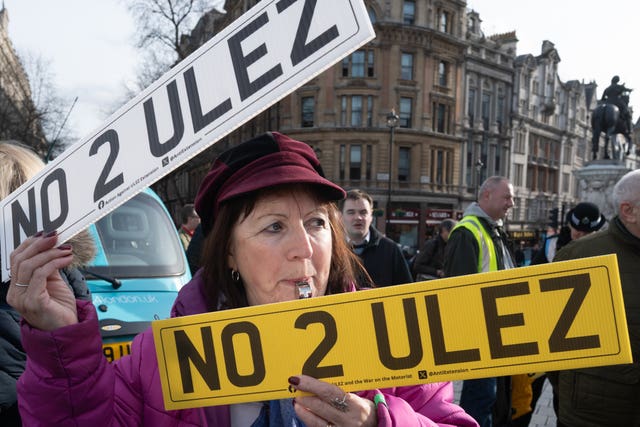IFS urges council tax and ‘road tax’ reform as parties unveil fiscal plans
‘Missing the opportunity to reform taxes substantively means missing opportunities to boost growth,’ an IFS deputy director said.

Council tax and “road tax” reforms could help the next government dodge public services cuts, a think tank has said.
Institute for Fiscal Studies (IFS) economists have warned there is “no plan for motoring taxes” as drivers transition away from fossil fuel-powered vehicles towards emission-free ones.
Property values and the marker used to determine how much council tax householders pay hit its 33rd anniversary in April this year, which think tank analysts described as “increasingly farcical”.

It comes as political parties unveil their manifestos this week ahead of the General Election on Thursday, July 4.
Helen Miller, IFS deputy director, said: “Unfortunately, governments have chosen not to fix any of the big structural problems with how taxes are designed. The list of major tax problems in 2024 is a copy-and-paste from the 2010 list.
“Missing the opportunity to reform taxes substantively means missing opportunities to boost growth and remove inequities that arise when similar people are taxed differently.
“Whether the next government chooses to raise or cut taxes overall, we should all hope that it will choose to leave us with better taxes.
“Promises not to increase certain taxes are a mistake. They can be a serious impediment to good tax reform. All parties should avoid putting tax commitments in their manifestos that would impede making the tax system better.”
In a paper, IFS economists wrote: “The challenge of getting to net zero greenhouse gas emissions looms ever larger, with many of the easiest ways to reduce emissions now all but exhausted; yet tax and related policies continue to make reducing emissions more costly than it needs to be while providing no incentive at all to reduce emissions from some activities.”
They added: “With petrol and diesel cars due to disappear from the roads in the coming years, fuel duty revenues – already declining – will disappear with them, while congestion on the roads will remain a huge drag on the economy and people’s lives.”
Average council tax rates fell in real terms by 8% between 2010 and 2015, the IFS found, before rising by 14% in real terms between 2015/16 and 2021/22 – not enough to “keep pace with inflation”.
Responding to the report, Mubin Haq of the Financial Fairness Trust said a low direct tax burden on average earners “leaves considerable scope for taxes to rise to avoid deep cuts to public services”.
Conservative and Labour figures have clashed over their tax policies on the campaign trail, amid controversy over a Conservative Party calculation that Labour would raise taxes by more than £2,000 per household, a claim based on “assumptions” by special advisers and a selection of statements, including newspaper articles.
According to its analysis, already agreed tax rises amount to £23 billion a year by 2028/29, including a 5p rise in fuel duty come spring 2025 and a drop in the stamp duty threshold to £125,000 the same month, down from £250,000, so the levy will apply to cheaper – and likely a greater number of – purchases.
Both of the frontrunner parties have said they would not raise income tax, National Insurance or VAT rates.
The Conservatives have pledged to axe stamp duty for first-time buyers on homes up to £425,000 and reverse the Ultra Low Emission Zone (Ulez) expansion – with its associated charges – into outer London, if they are re-elected.
Labour’s Jonathan Ashworth declined to rule out raising capital gains tax if Labour wins the election.
At a press conference in central London, he said: “Under a Labour government, there will be no increase in income tax, no increase in national insurance, no increase in VAT.
“Nothing in our plans requires additional tax to be raised.”





